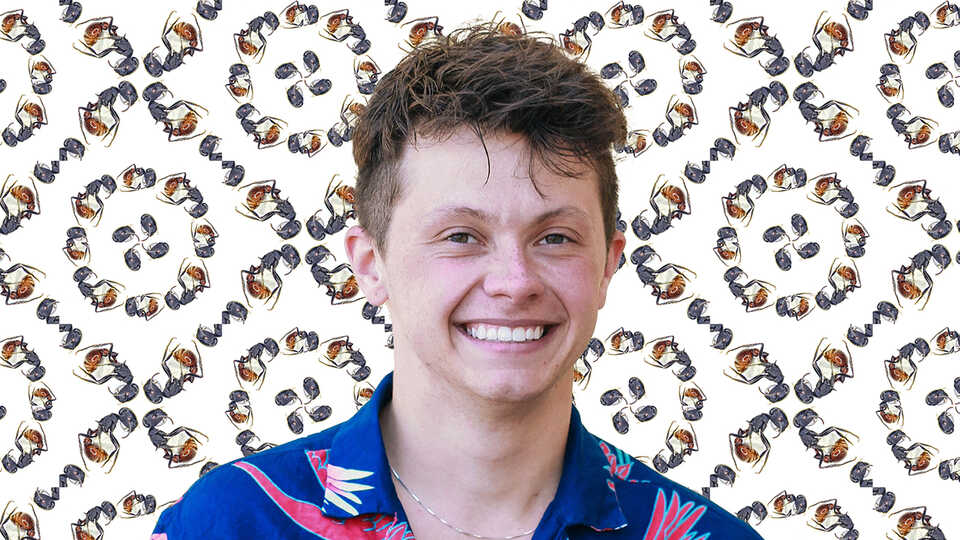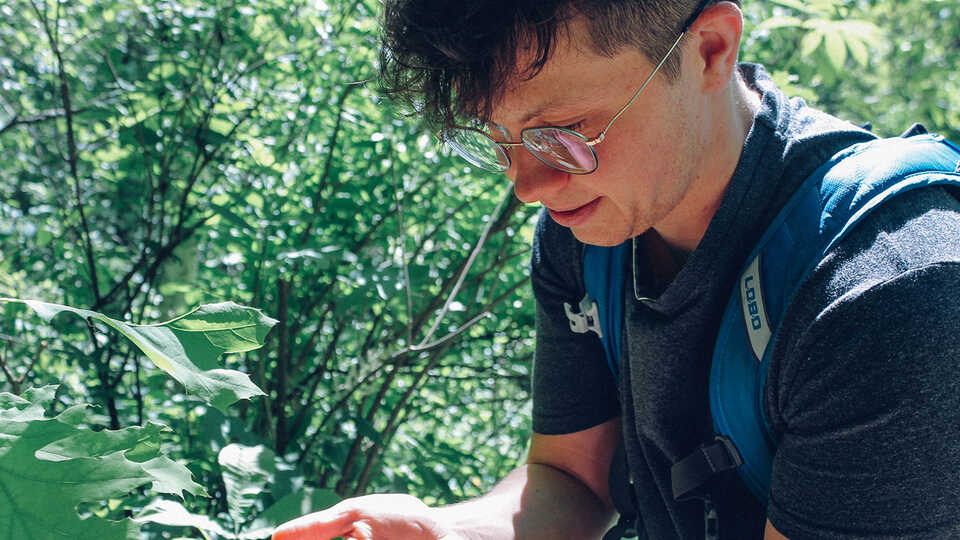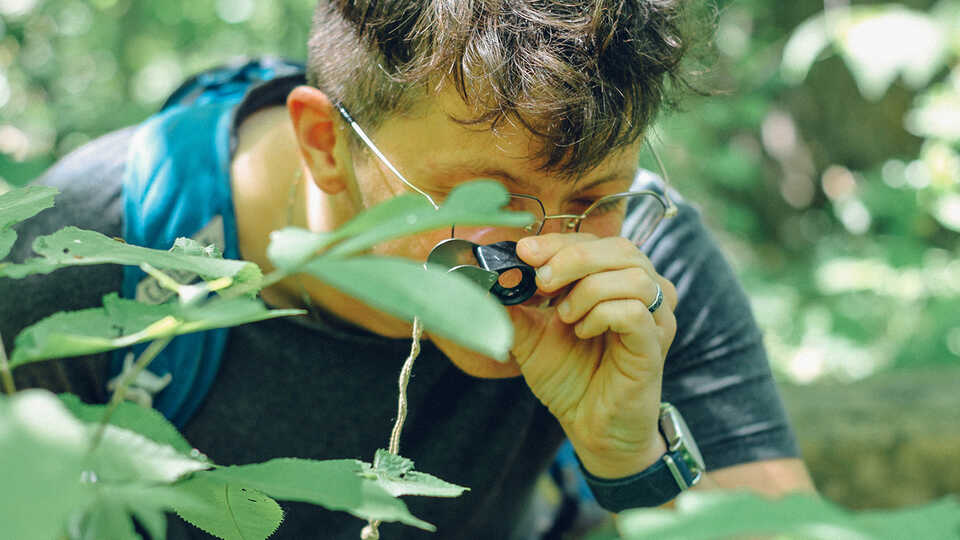Leland's Story (he/him)
I started researching insects at the University of Minnesota at 19 and began to realize that I was transgender at 20, so I was effectively an entomologist before I was trans. For a few years, I was private about my trans identity as an undergraduate researcher. I told the occasional co-worker when I changed my pronouns from “she/her” to “they/them,” but I never told any of my advisors or supervisors. I feared humiliation or even worse: a total withdrawal of support that could destroy my future as a scientist. When I decided that I wanted to change my name and start a medical gender transition at 23, however, I knew that I no longer had a choice to be private.
Coming out and beginning to transition made me feel so free, but it also made me visibly trans for the first time in my life. I became used to strangers being unable to determine my gender. At scientific conferences, I would often be misgendered or receive strange looks from cisgender scientists. But while I felt some discomfort, I was also so happy to meet other LGBTQIA+ scientists at conferences and, later, on Twitter. I now have a large, supportive network of queer and trans scientists who I will often talk and collaborate with. It turns out, LGBTQIA+ people are doing some of the coolest science!
My life as a trans scientist is very different now that I am “passing,” or often assumed to be a cis man. I have a lot of privilege and am treated differently than I was when I was assumed to be a gender non-conforming woman. This privileged treatment makes me angry and impassioned to call out gender bias in science when I see it. One of my biggest trans scientist role models, Dr. Ben Barres, used his white and male privilege after transitioning to uplift women and underrepresented scientists. I hope to use my scientific career to follow in his footsteps and use my career to make science more accessible.
All that being said, I am very open about my trans identity in scientific spaces, which is a privilege itself in a society that is often hostile to trans people. I am incredibly lucky to work with a supportive lab, advisor, and department and have not once felt in danger since starting graduate school. After I finish my PhD and hopefully become a professor, I dream of teaching and mentoring young queer and trans students. Biology will be a much more vibrant, prolific, and fun field with more LGBTQIA+ scientists in it!
Explore New Science anywhere through our virtual Google Arts & Culture exhibit, or see our new, in-person exhibit on your next Academy visit.
To learn more about the partners that helped make New Science possible, visit:


